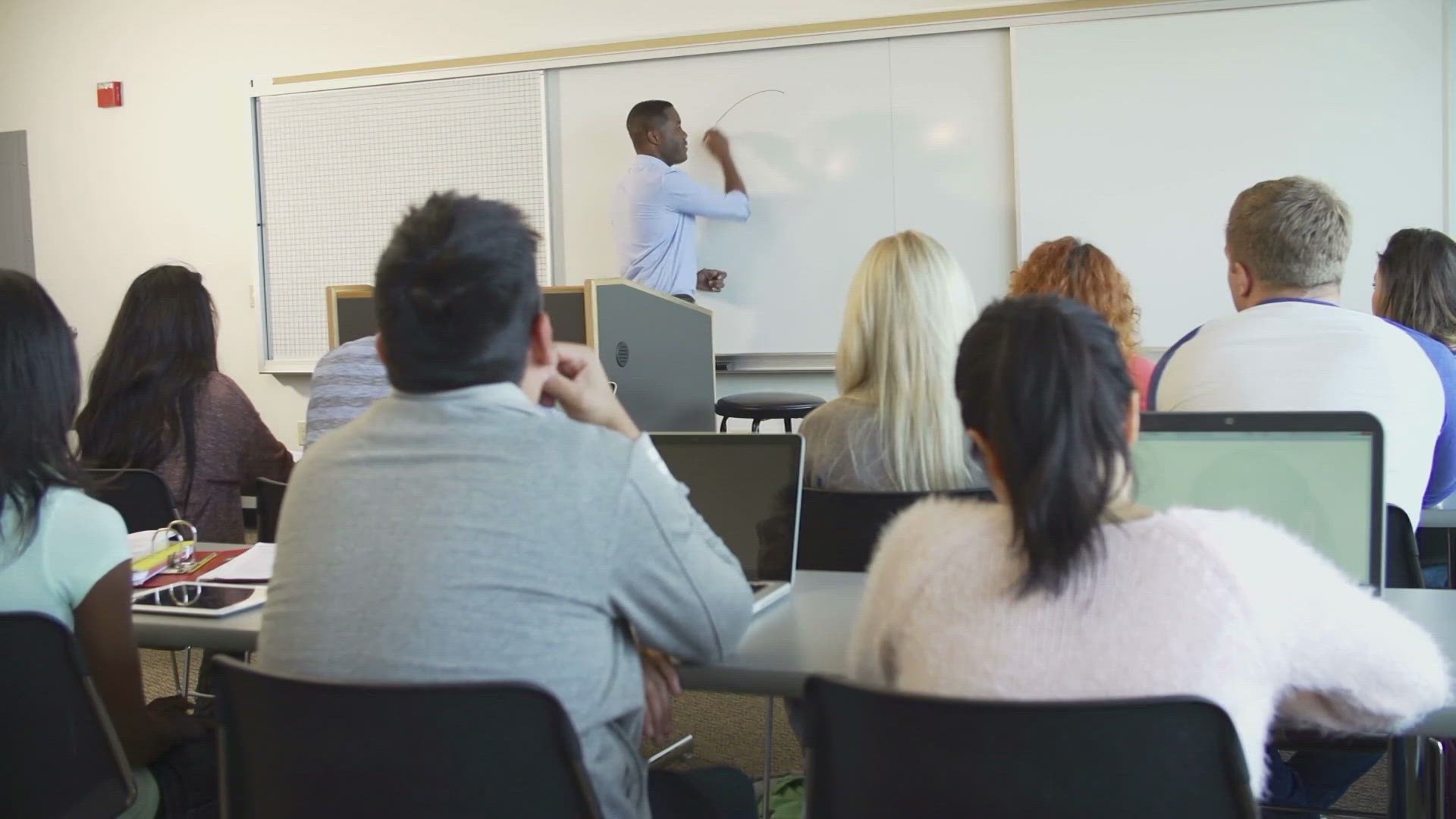SAN ANTONIO — As the parents of any child in college know, the cost of school has skyrocketed over the past several years. Many are skipping or delaying higher education, and looking for alternative routes to a career that pay right out of high school.
Many college students rack up tens of thousands of dollars in loans in order to pursue a degree. So is making money, instead of spending money, right out of high school a better way to go? We find out if it is college or bust.
Derick Anthony is a senior at John Marshall High School, and Sadie Nuno just graduated from Northside last year. Anthony is in the Law, Medical and Science program at the school.
"I plan personally to go to a hospital or a resident home, whichever one, and actually still be in school," Anthony said. "And when I turn 18 I could work there, get paid, and then that could be like my sort of profession as of right now."
Nuno got a job to train as a pharmacy tech right out of high school.
"A week after I graduated, I got my first offer from CVS, and then about a month later, I started actually working after processing all the paperwork," she said.
Both students know college can be expensive and plan to do more education in the future. But they also know that, for many, it isn't necessarily needed.
"I just feel like certain specialties do need a degree, like medical field and stuff like that," Nuno said. "But I don't think that you absolutely have to go to college to be successful."
"I do think it's needed to get different degrees if you want, like me, go to medical school with all the schooling I need," Anthony added.
The Pew Research Center says one in four U.S. adults say it's extremely important or very important to have a four-year college degree to get a well-paying job. About one in two say it's less important to have a four-year college degree compared to 20 years ago.
And about one out of five say the cost of getting a four-year college degree today is worth it even if you have to take out loans.
Anne Marie Walker, a Northside ISD Instructional Support Teacher added, "These industry-based certifications are not high school certifications. They're post-secondary. They're nationally recognized. And so they really can go and get a job that people have, as an 18-year-old graduating high school."
Forbes says that for those with in-state tuition, in 2022 to 2023 the average total cost of attending a public, four-year institution was $27,100 for students living on campus. For a private, for-profit school, the cost averaged $33,600. But a nonprofit college was the highest, with a total for four years of $58,600.
At Marshall High, students not only get the training for free, but they bring the jobs to the students too.
Walker told us, "We have job fairs at the end of the year. We had one for our health science where we had CVS. We had several of the local hospitals come in."
So how do you know if you can afford college? Forbes advises keeping these three factors in mind when considering college:
- What are your career goals?
- Does the school you're eyeing offer a strong program in your area of interest?
- How much would you pay for tuition and other expenses?
Both of our students believe they're taking the right track to a successful career.
"I do think it does give me a leg up, because in my future, I do want to eventually be a pediatrician. So I think being in this program is giving me that extra edge that I need," Anthony said.
"I do think that it's very beneficial to take the opportunity that there is right in front of your face and see where it can take you," Nuno said.

